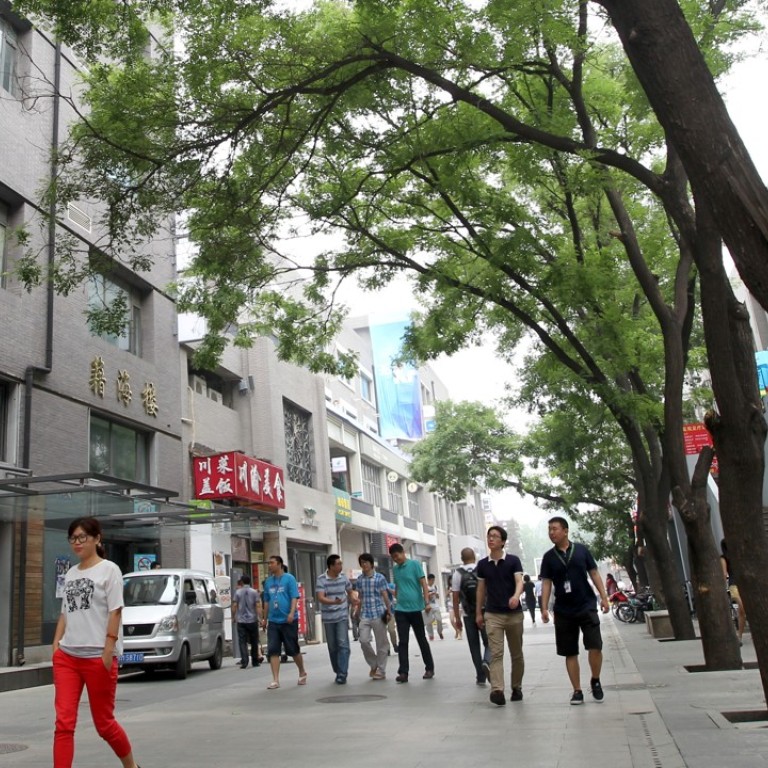
Can Chinese state firms compete fairly? Beijing claims ‘competitive neutrality’
The label is being adopted to justify China’s preferential treatment of such companies, viewed as unfair internationally – but trade partners are unconvinced
Chinese government officials are referring to an obscure term promoted by Europe, “competitive neutrality”, as a new catchphrase to defend the country’s state-owned firms at a time when the United States and the European Union are complaining loudly about distorted competition caused by them.
Beijing is known for giving preferential treatment to state-owned enterprises (SOEs), and has kept a distance from international efforts to draft rules governing such firms, which Chinese President Xi Jinping has hailed as “the material and political foundation of socialism with Chinese characteristics” and “the key power and reliance for the Communist Party’s rule of China”.
But as trade confrontations with Washington rage on, partly due to divergence over the role of SOEs, Chinese officials have started to cite “competitive neutrality” to argue there could be a level playing field between state, private and foreign firms in China.
However, China’s major trading partners are not buying the claims, given that Beijing is trying to portray itself as a market economy. The US has opposed giving China “market economy” status through the World Trade Organisation.
The idea of “competitive neutrality” is promoted by the Paris-based Organisation for Economic Cooperation and Development (OECD) – a club of industrialised countries of which China is not a formal member.
It involves companies of different ownerships being able to compete fairly through improved transparency in policies, to ensure equitable treatment in areas such as subsidies, taxes, trade instruments such as tariffs, and other support mechanisms, and reforming them where they unnecessarily distort competition.
Yi Gang, the People’s Bank of China chief, told the G30 International Banking Seminar on Sunday that China is considering treating state enterprises in line with principles of “competitive neutrality”, although he did not elaborate.
Peng Huagang, deputy secretary general of the State-owned Assets Supervision and Administration Commission (SASAC), Beijing’s watchdog for the country’s state industrial companies, said at a press conference in Beijing on Monday that Chinese SOEs were already integrated into China’s “market economy” and should be treated like other types of enterprises.
China’s SOEs, Peng said, were “independent market players” that were responsible for their own operation and profitability and no different from enterprises “of other forms of ownership”.
“This is in line with the principles of ‘competitive neutrality’,” Peng said.
Zhou Xiaochuan, China’s former central bank governor, made similar comments at a seminar in Geneva last month, saying China’s SOEs were normal market players and the government could follow “competitive neutrality” principles.
China’s major trading partners remain sceptical about China’s motives for describing its SOEs as purely commercial entities.
US, EU and Japanese trade ministers last month said they agreed to work to secure “a level playing field”, because of “the challenges posed by third parties developing SOEs into national champions”.
In particular, the ministers pledged to address the “market-distorting behaviour of state enterprises and harmful subsidy practises”, an indirect reference to China’s SOEs strategy.
Meanwhile, the Business 20 – a G20 business advisory group representing the views of the private sector – issued a statement this month calling for an end to state-related competitive distortions, the wording of which met with strong objections from China.
The China Council for the Promotion of International Trade, a semi-official Beijing-backed group, even tried to block the communique from being submitted to G20 leaders in Buenos Aires, Argentina, in November and demanded revisions to SOE-related sections in it.
Peng, from SASAC, said the statement’s policy proposals to the G20 leaders summit – which both Xi and US President Donald Trump are expected to attend – have overlooked the fact that “SOEs have fully integrated into the market … and participated in fair market play with other enterprises”.
“We oppose discriminatory treatment of SOEs in the formulation of international rules,” he said.
Alicia Garcia Herrero, chief economist for Asia-Pacific at Natixis, said the new rhetoric from China’s financial officials could mean China might be ready to discuss joining OECD or accepting policy recommendations, with Beijing fighting to win international support in a trade war with the US.
Meanwhile, although principles such as “competitive neutrality”, or notions of fair play between state and private firms, are receiving support, it is “a much more difficult question” to realise it on the ground, according to the OECD’s own document on its website.
The existing policy guidelines of the OECD cover issues such as equality in tax, regulatory and debt treatment, but do not include specific issues about Chinese SOEs such as the role of the Communist Party in corporate governance and appointing executives.
Kevin Lai, an economist at Daiwa Capital Markets, said the term “competitive neutrality” had been borrowed by Beijing to make its own point, but that China’s SOEs were expected to continue receiving favours through China’s spending and lower borrowing costs from state banks.
“Reforms [in state-owned firms] are moving backwards,” he said. “Private companies are having a tough time, facing increasing costs of funding. The state comes first, everyone else is second.”

